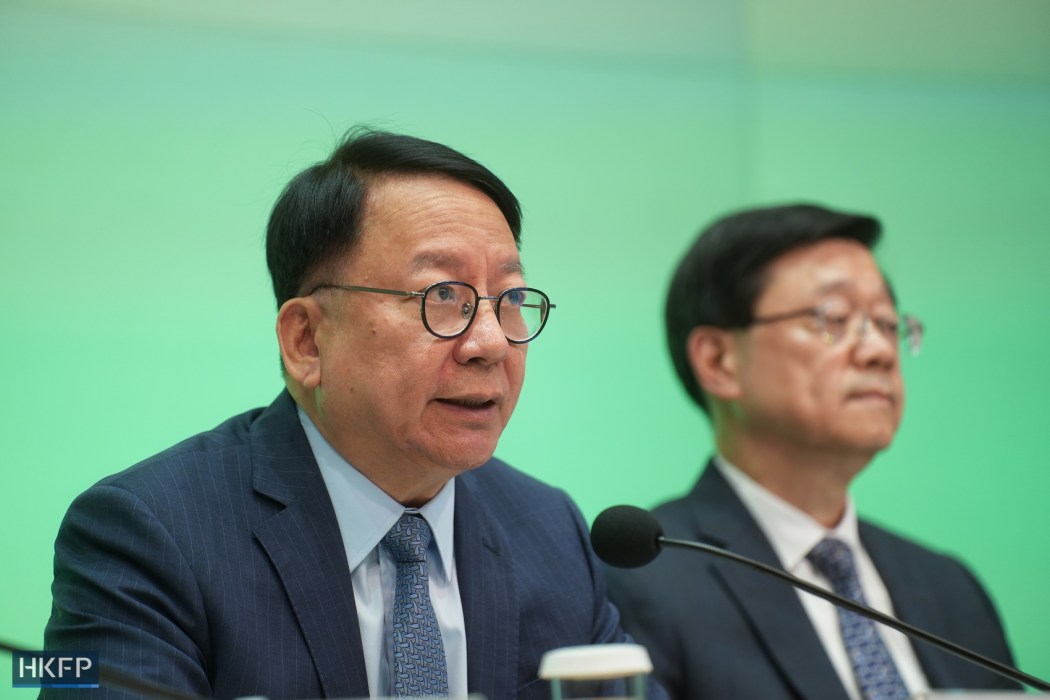Hong Kong’s legislature has approved an injection of HK$70 million into the Disaster Relief Fund, part of which would be used to support flood victims in mainland China who were affected by typhoon Doksuri that killed at least 78 people last month.

The Finance Committee on Wednesday approved the government’s request for an additional provision of HK$70 million for the Disaster Relief Fund. There was an “imminent need for injection,” the government told the Legislative Council (LegCo), citing the fund’s unspent balance of around HK$72 million, which was not sufficient to cover the known spending of around HK$97 million.
According to a document submitted to the committee, the government said the Beijing-Tianjin-Hebei region and Northeast China were seriously battered by heavy rain brought by typhoon Doksuri in mid-July, which cause widespread flooding.
Doksuri hit mainland China as a typhoon, delivering the most severe rainfall since records began 140 years ago. The downpours came after weeks of historic heat, and scientists said the extreme weather events were exacerbated by climate change.
More than five million people were believed affected by the floods, with sizeable casualties as landslides were triggered by the torrential rain and a large number of houses and infrastructure were damaged.
Chief Secretary for Administration Eric Chan told lawmakers on Wednesday that there was an urgent need to support flood victims in mainland China. He said the relief fund would be a one-off grant mainly to provide water, food and other supplies to the people affected and would not be used for post-disaster recovery.

“Because the flooding situation in mainland China is serious, there is an urgent need for us to provide emergency relief to flood victims, to demonstrate the spirit of mutual help between compatriots in Hong Kong and mainland China, and that blood is thicker than water,” Chan said, speaking Cantonese.
The injection was also to ensure there would be sufficient balance to cater to other possible applications, such as applications from other relief work in mainland China
According to the LegCo document, the advisory committee of the relief fund earlier granted approval in-principle to hand a fund totalling HK$65 million to nine organisations to offer help to flood victims in mainland China.
The groups were the HKFTU Disasters Relief Charity Fund, Federation of Hong Kong Beijing Organisations, World Vision Hong Kong, H.K. United Youth Exchange Foundation, The Hong Kong Island Social Services Charitable Foundation, Hua Jing Youth Foundation, Hong Kong CPPCC (Provincial) Members Association Foundation, All-China Women’s Federation Hong Kong Delegates Association Foundation and Amity Foundation, Hong Kong.
The government received further applications from other organisations which said they wanted to provide relief to the victims in mainland China. Including the HK$65 million approved earlier, the total amount of grants required by groups which had immediate plans to launch relief operations for the flood was around HK$88 million, Chan said.
The authorities also saw applications for grants totalling around HK$9 million to provide relief to typhoon victims in the Philippines and those impacted by flooding in India. Adding that figure to the grants needed for disaster relief work in mainland China, the government said a total of around HK$97 million had to be taken out from the Disaster Relief Fund.
The HK$70 million top-up, apart form covering the fund’s shortfall of around HK$25 million, also included around HK$45 million to ensure there would be sufficient balance to cater for other potential applications in the remainder of this financial year, which runs until March 31, 2024.
Legislators called on the government to effectively monitor whether the funding granted to the organisations was used appropriately. Tik Chi-yuen, who identifies as the only non-establishment lawmaker, said many of the organisations which were handed grants were first-time applicants and raised concerns over their experience in handling disaster relief work.
In response, Chan said these organisations had close ties with mainland China, where they also had counterparts to assist their relief work. The government would not grant funds to the organisation if they failed to meet the criteria, he said.
Support HKFP | Policies & Ethics | Error/typo? | Contact Us | Newsletter | Transparency & Annual Report | Apps
Help safeguard press freedom & keep HKFP free for all readers by supporting our team

LATEST FROM HKFP
HKFP has an impartial stance, transparent funding, and balanced coverage guided by an Ethics Code and Corrections Policy.
Support press freedom & help us surpass 1,000 monthly Patrons: 100% independent, governed by an ethics code & not-for-profit.










